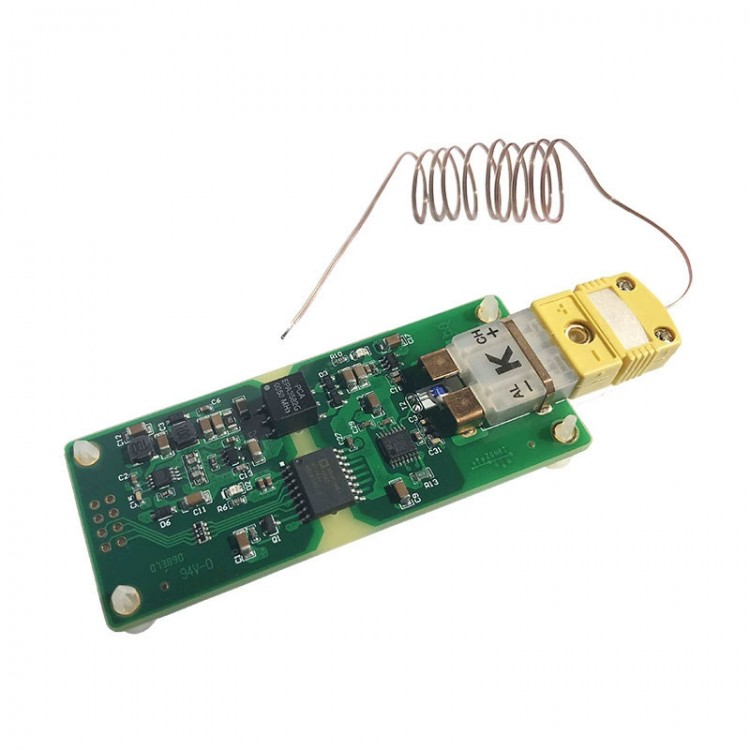
| Quantity | 3+ units | 10+ units | 30+ units | 50+ units | More |
|---|---|---|---|---|---|
| Price /Unit | $37.38 | $36.61 | $35.47 | $33.94 | Contact US |
 10KW DC500-750V Input AC220V Output Pure Sine Wave DC-AC Inverter Board with Pre-charging
$199.84
10KW DC500-750V Input AC220V Output Pure Sine Wave DC-AC Inverter Board with Pre-charging
$199.84
 DAMIAO ORIN NX V2 Super Carrier Board with 2230-256G SSD and AX200 Network Card Drone Development Accessory for NVIDIA
$156.36
DAMIAO ORIN NX V2 Super Carrier Board with 2230-256G SSD and AX200 Network Card Drone Development Accessory for NVIDIA
$156.36
 DAMIAO ORIN Nano 16G Super 157T High Performance UAV Drone Development Kit for NVIDIA Jetson ORIN Nano
$1,137.73
DAMIAO ORIN Nano 16G Super 157T High Performance UAV Drone Development Kit for NVIDIA Jetson ORIN Nano
$1,137.73
ZONRI AD7793 Module K Thermocouple Temperature Acquisition Module PT100 Cold Junction Compensation
Features:
* Complete temperature measurement system based on AD7793 and ADI CN0206_cn recommended documents
* PT100 is used as cold junction compensation, and 4-layer PCB cross uniform temperature wiring
* Supports wide voltage input: 3-9VDC. 19mA typical current at 3.3V; 12mA typical current at 5V
* SPI interface supports SPI multiplexing multi-channel applications
* The maximum thermodynamic measurement range at 32 times gain is 36.5625 mV, which corresponds to 881℃ for K thermocouple indexing table
* The maximum thermodynamic measurement range at 16x gain is 73.125mV, covering the entire measurement range of K thermocouple
* The minimum isolation voltage is 2500VDC
* Signal isolation chip is ADUM1401
* Analog SPI reference program (STM32F10X) can be provided
Download Materials:
https://pan.baidu.com/s/1RxifBK5zSWF1AvTj7Qnczg
Package Included:
* AD7793 Isolated K Thermocouple Module x 1
* 2X4Pin Pin Header
FAQ:
Q: What is the temperature resolution?
A: The temperature resolution is about 0.03°C, and the typical noise is 0.085 degrees (that is, in a closed and constant temperature environment, when the temperature is stable and there is no digital filter, the read temperature data jumps at 0.085°C. When the thermocouple is exposed to the air, it will easily bring more than 0.2°C of runout due to air flow)
Q: How do I convert the read thermocouple thermal EMF to a temperature value?
A: We typically use a look-up table method or a piece-wise fitting method to convert a nonlinear "thermal EMF-temperature" to a temperature value.